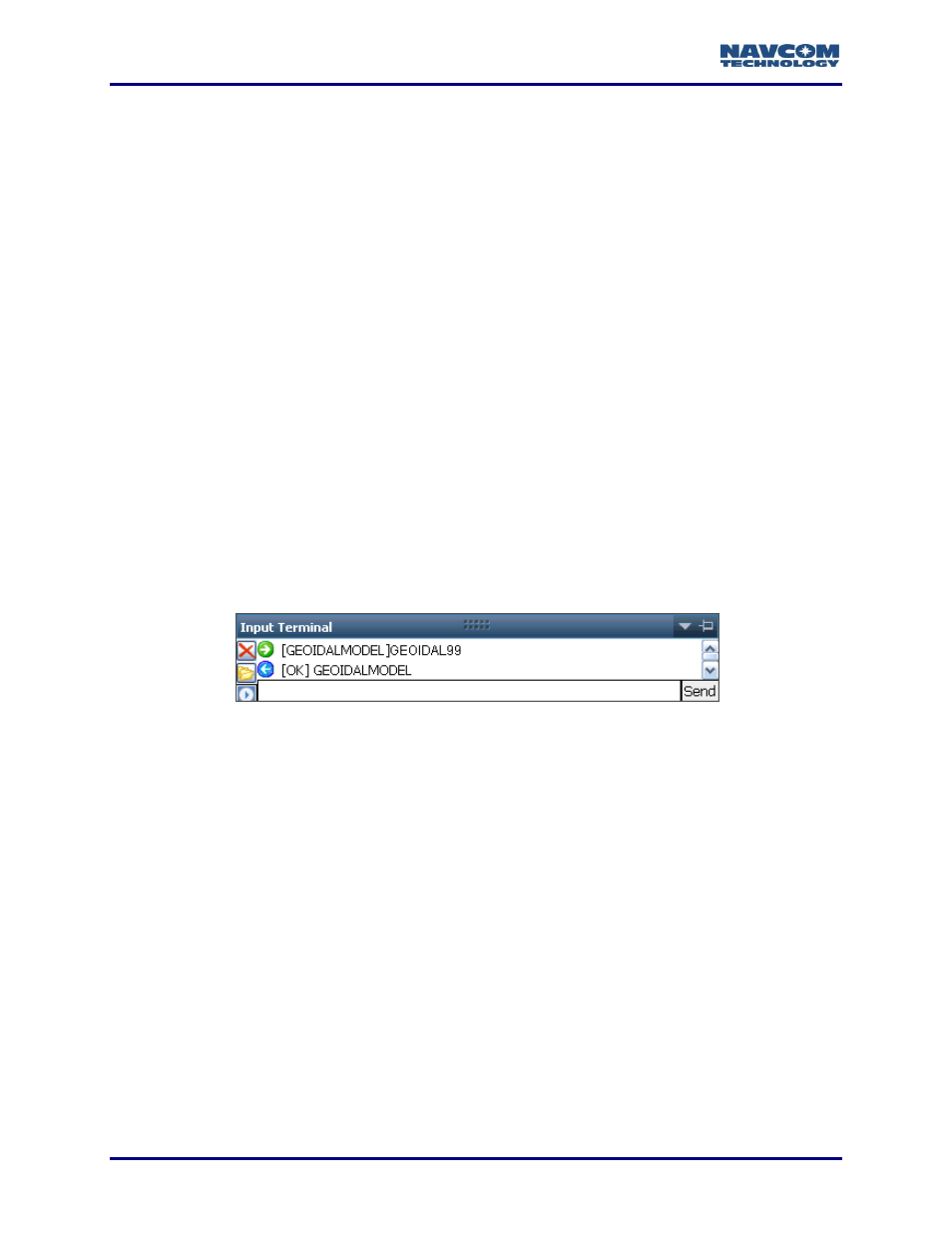Datum – NavCom StarUtil-3000 Rev.G User Manual
Page 80

StarUtil 3000 User Guide
– Rev G
4-78
Refer to
5. Browse to and select the appropriate file. The path to the file appears in the upload field.
Data retreived from the file is displayed:
Southmost Latitude / Spacing (distance interval in latitude) / Rows (number of rows of
latitude)
Westmost Longitude / Spacing (distance interval in longitude) / Rows (number of
columns of longitude)
Total Points: < 262,000 limit. If the limit is exceeded, upload is denied.
6. Ensure that Restart receiver after loading (default) is checked so that the receiver will reset
(perform a warm start) after the upload is successful. (The user receives no indication of the
warm start. It is a background process.)
7. Click the Start Loading button. An upload progress window opens. At the end of upload, a
confirmation box opens. Click OK.
Ensure that the receiver has restarted from the warm start before performing the
next step. Monitor the PVT tab/Navigation Status window
for a change from “Nav
invalid” to “Nav valid,” or monitor the LEDs on the front indicator panel of the
receiver. Refer to the SF-3040 GNSS Product User Guide or the SF-3050 GNSS
Product User Guide for details on LED indications (see Related Documents in the
fore-matter).
8. Type [GEOIDALMODEL]GEOIDAL99 in the Input Terminal window and click the Send
button (see Figure 84).
Figure
84
: [GEOIDALMODEL] GEOIDAL99 Command and Response
9. View the PVT window on either the Dashboard or the PVT tab to confirm the successful
upload. GEOID99 is identified as the current GEOID (see Figure 75).
The Geoid Height Map (GEOID99) is not maintained as the Geoid Model through a
receiver power cycle in version 1.0.0.4 navigation firmware. This is corrected in
later versions of firmware. To reset the Geoid Height Map as the Geoid Model,
reload the appropriate user profile or input [GEOIDALMODEL]GEOIDAL99 via the
Input Terminal.
Datum
The datum can be provided by the system (built-in datum) or it can be defined by a user, in
which case the user supplies all parameters in the specific format from the command line (see
User-Defined Datum, below).
